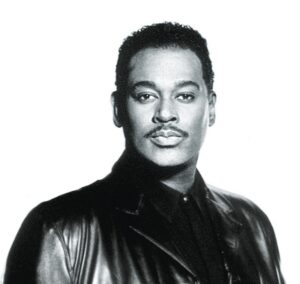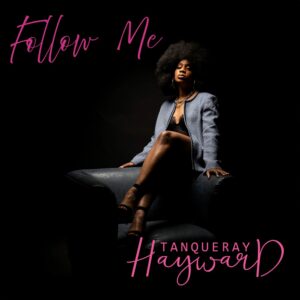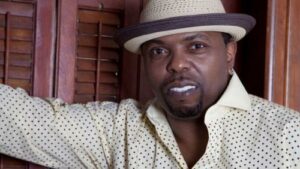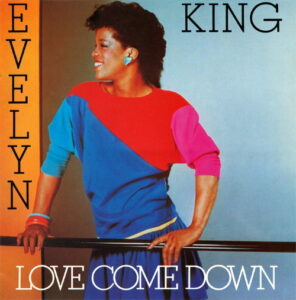 This one is going to get me in trouble. Should I? What the hell, why not? I can always move overseas once the torches and pitchforks reach my door. (Deep breath) here we go. Those who’ve been following this sacred space for the last several years already know that one of our major pet peeves over here at SoulTracks are those who believe that quality Black music is on life support and that nothing new and exciting is happening in R&B, soul, gospel, nu jazz—essentially Black American Music (BAM). We prove here daily that nothing could be further from the truth, providing a global outlook on #BAM to inform our readers of the best of the best in independent and mainstream BAM, even when it’s performed by those who aren’t Black or even Americans. It’s probably for that very reason that I’d recently begun to slide into the belief that maybe the era of great R&B and soul performed by Americans was starting to leave us, if only for this cycle or two, maybe three, with everyone else starting to collectively best us at our own game. There certainly have been plenty of reasons to think so.
This one is going to get me in trouble. Should I? What the hell, why not? I can always move overseas once the torches and pitchforks reach my door. (Deep breath) here we go. Those who’ve been following this sacred space for the last several years already know that one of our major pet peeves over here at SoulTracks are those who believe that quality Black music is on life support and that nothing new and exciting is happening in R&B, soul, gospel, nu jazz—essentially Black American Music (BAM). We prove here daily that nothing could be further from the truth, providing a global outlook on #BAM to inform our readers of the best of the best in independent and mainstream BAM, even when it’s performed by those who aren’t Black or even Americans. It’s probably for that very reason that I’d recently begun to slide into the belief that maybe the era of great R&B and soul performed by Americans was starting to leave us, if only for this cycle or two, maybe three, with everyone else starting to collectively best us at our own game. There certainly have been plenty of reasons to think so.
Throughout the annals of music history there have been other “invasions” in the American pop landscape, particularly from the Brits. Be it the Beatles, Tom Jones, and Dusty Springfield in the ’60s or the UK Soul revolution of the 80’s bringing us such acts as Loose Ends, Soul II Soul, Caron Wheeler, The Eurythmics, Phil Collins, Simply Red, George Michael, Lisa Stansfield, The Style Council and a bevy of others.
 And it has begun to seem of late that we are in the grips of yet another such UK invasion on the soul music side. Over and over again, the discovery I was most in love with seemed to be from somewhere else; even José James, an American, was an expatriate living in the UK when I first fell in love with Black Magic. In recent years, outside of the obviously ginormous shadows of Adele and Amy Winehouse, I’ve had musical love affairs with: Siji, Kwabs, Daley, Lemar, Rumer, Duffy, Tawiah, Quantic, Bonobo, Eric Lau, Raphaella, Noisettes, Szjerdene, Jessie J, Diva Geek, Josh Osho, The Rurals, Jessie Ware, Jacob Banks, Lizbet Sempa, Abel Miller, Laura Mvula, Mo Brandis, Alice Russell, Emile Sandé, Kylie Auldist, Soulpersona, Loicke Essien, Jamie Lidell, James Blunt, James Blake, Tony Momrelle, Jacob Collier, Positive Flow, Sam Robson, Marques Toliver, Ebony Alleyne, Bluey Robinson, James Morrison, Jahméne Douglas, Michael Kiwanuka, Rebecca Ferguson, Lianne La Havas, Josephine “Josephine” Oniyama, and The Intermission Project—most of whom are under 35, if not under 25 in age.
And it has begun to seem of late that we are in the grips of yet another such UK invasion on the soul music side. Over and over again, the discovery I was most in love with seemed to be from somewhere else; even José James, an American, was an expatriate living in the UK when I first fell in love with Black Magic. In recent years, outside of the obviously ginormous shadows of Adele and Amy Winehouse, I’ve had musical love affairs with: Siji, Kwabs, Daley, Lemar, Rumer, Duffy, Tawiah, Quantic, Bonobo, Eric Lau, Raphaella, Noisettes, Szjerdene, Jessie J, Diva Geek, Josh Osho, The Rurals, Jessie Ware, Jacob Banks, Lizbet Sempa, Abel Miller, Laura Mvula, Mo Brandis, Alice Russell, Emile Sandé, Kylie Auldist, Soulpersona, Loicke Essien, Jamie Lidell, James Blunt, James Blake, Tony Momrelle, Jacob Collier, Positive Flow, Sam Robson, Marques Toliver, Ebony Alleyne, Bluey Robinson, James Morrison, Jahméne Douglas, Michael Kiwanuka, Rebecca Ferguson, Lianne La Havas, Josephine “Josephine” Oniyama, and The Intermission Project—most of whom are under 35, if not under 25 in age.
So, we’re not even getting to the beloved Royal Court of Sade, Omar, Incognito, Mica Paris, Reel People, Hil St. Soul, Nate James, Leona Lewis, Craig David, Lewis Taylor, Paul Weller, Beverly Knight, Swing Out Sister, Brand New Heavies or Mick Hucknall. Or transplants like Boris, Shawn Lee, José James, Kristina Train, Carleen Anderson, Daniel Merriweather, and Alexander O’Neal who brought their ample gifts to the British music industry. Even Marsha Ambrosius and The Floacist (formerly a duo named Floetry) are from “across the pond.” A quick review of these long but nowhere near exhaustive lists (yes, I purposely left out Joss “Makes My Teeth Itch” Stone; make your own lists) will reveal nearly every artist of note the “serious” soul fan hordes to themselves and every tastemaker blog and music website has breathlessly exalted as the second coming of the Baby Jesus.
Not only have these UK artists been a dominant force over this last era in R&B, soul, dance, electronica, and even pop (Florence and The Machine, anybody?), these talents have also been setting the trends. A cursory review of any televised American musical talent show competition will reveal a bunch of teens and 20-somethings emulating not the big brassy belts of Whitney Houston or river dragging bottoms of Toni Braxton, but rather the breathy, broken note staccato styles of Adele and Amy Winehouse (who themselves were emulating generations of Black American jazz singers). Now so many singers are trying to sound like “British soul,” you’d think that country was deep in the throes of an R&B revolution on it’s own airwaves, but the UK’s often marginalized soul and nu jazz artists will be quick to tell you they have to fight just as hard for recognition and airplay over there as our artists do over here. Of course, there is a bit of the grass is greener syndrome going on in both sides of the Atlantic. Still, surely one could forgive if I look at those previously mentioned laundry lists of talent and wonder if our own BAM artists aren’t creatively and musically slacking off a bit in this friendly competition known as pop culture or even in the American music industry as a whole?
 And it’s not just the Brits that are bringing the pain. A look at the continent reveals the Scandinavian countries aren’t playing with our artists either, with such acts as Lylit, Tuomo, Bernhoft, Quadron, Phillip Owusu, Timo Lassy, Little Dragon, Linn & Freddie, Stephen Simmonds, Owusu & Hannibal, Marie Dahlstrom, and Samson for President all making noise — and those are just the tip of their growing movement. Nor are the Dutch, with Anouk winning majorly this year with Sad Song Singalongs, Soul: I.D., Alain Clark, Sabrina Starke, and Boris Titulaer before he jumped ship for the UK and chopped off half his name. Not to be outdone, the French want in too with the internationally celebrated Corneille, Les Nubians, Stefan Filey, China Moses, Ben l’Oncle Soul, JB Craipeau, and the international folksy expatriate, KuKu. Of course, there are those steamrolling Germans who won’t be easily pushed around with such talents as Nneka, Fetsum, Georg Levin, Jazzanova, Ivy Quainoo, and Joy Denalane making their marks. Even the down under gang in Australia and New Zealand want in on the action with Aaradhna, Hiatus Kaiyote, Sam Sparro, Electric Empire, and Zaki Ibrahim, kicking down the doors where they can.
And it’s not just the Brits that are bringing the pain. A look at the continent reveals the Scandinavian countries aren’t playing with our artists either, with such acts as Lylit, Tuomo, Bernhoft, Quadron, Phillip Owusu, Timo Lassy, Little Dragon, Linn & Freddie, Stephen Simmonds, Owusu & Hannibal, Marie Dahlstrom, and Samson for President all making noise — and those are just the tip of their growing movement. Nor are the Dutch, with Anouk winning majorly this year with Sad Song Singalongs, Soul: I.D., Alain Clark, Sabrina Starke, and Boris Titulaer before he jumped ship for the UK and chopped off half his name. Not to be outdone, the French want in too with the internationally celebrated Corneille, Les Nubians, Stefan Filey, China Moses, Ben l’Oncle Soul, JB Craipeau, and the international folksy expatriate, KuKu. Of course, there are those steamrolling Germans who won’t be easily pushed around with such talents as Nneka, Fetsum, Georg Levin, Jazzanova, Ivy Quainoo, and Joy Denalane making their marks. Even the down under gang in Australia and New Zealand want in on the action with Aaradhna, Hiatus Kaiyote, Sam Sparro, Electric Empire, and Zaki Ibrahim, kicking down the doors where they can.
If I added another listing from Canada and our Asian countries, I’d easily double my page length. Which is to say that after being in an international love affair with soul from abroad, as any good patriot would, I had to consciously remind myself of who those artists are that I love right here at home. That had its own disappointments in that most of those I revere Stateside have been doing it for 10 to 20 years, meaning all those vets thriving on the label rosters of eOne, Atlantic, Purpose, Shanachie, Stax/Concord, DapTones, Stones Throw, and the like. This rather distressing truth, one that could mean another decade of foreign grown musical dominance, meant I had to purposely and rather intentionally spend two weeks combing through underground EPs, mixtapes, and YouTube videos in search of an under 30 crowd of musicians and artists who were coming close to what was happening overseas; ones that didn’t all sound like wannabes of Chris Brown, Trey Songz, Rihanna, and Beyonce. I wish I could tell you that list comes nearly as close to being as long as my Brits list. It doesn’t. But, they are there. Young, talented, fresh, eager and largely anonymous, enough to warrant their own separate column to spotlight their too often unsung efforts. But, they aren’t legion and they aren’t making a mint toiling in relative obscurity. So, if we don’t want this cycle of international dominance on the American music scene, both mainstream and underground, we’ll have to do a better job of cultivating, encouraging and promoting our younger tiers of talent from here on out. Otherwise, the American era of sector dominance in yet one more field will be over and, as in manufacturing, God only knows if we’ll ever get it back.
By L. Michael Gipson









